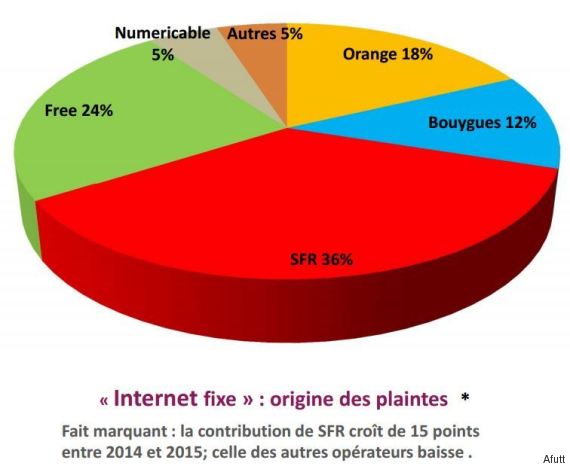 Charter Communications today launched Spectrum Mobile, a new no-contract mobile phone service for existing Spectrum internet customers offering two simplified plans, including a “pay per gigabyte” plan that will allow customers to get unlimited calling, texting and 1 GB of data for $14 a month.
Charter Communications today launched Spectrum Mobile, a new no-contract mobile phone service for existing Spectrum internet customers offering two simplified plans, including a “pay per gigabyte” plan that will allow customers to get unlimited calling, texting and 1 GB of data for $14 a month.
Spectrum Mobile relies on Verizon Wireless’ 4G LTE network to assure strong network coverage, and phones sold are also designed to simplify connections to home Wi-Fi and Spectrum’s nationwide network of Wi-Fi hotspots. But Spectrum Mobile appears to limit speeds of certain Verizon Wireless network traffic, notably videos, which “typically stream at 480p.”
The plans and website are remarkably similar to Comcast’s XFINITY Mobile, except Spectrum’s “pay per gig” plan costs $2 more ($14) than the one on offer from Comcast ($12).
Spectrum Mobile also does not currently permit customers to bring their own devices — customers must buy new devices from Spectrum’s store, which as of today only offers five Android phones from Samsung (Galaxy S8, S8+, S9, S9+) and LG (K30). Phones can be purchased up front or financed for 24 months at 0% interest at prices ranging from $7.50 a month for the LG phone to $35.42/month for the Galaxy S9+. A separate trade-in program is available to reduce the cost of investing in a new phone. Spectrum accepts most phones from Apple, Samsung, HTC, Google and LG as long as they meet trade-in standards.
Customers are given the option of two plans, based on anticipated data consumption. Customers who typically use 3 GB or more per month should sign up for the unlimited plan:
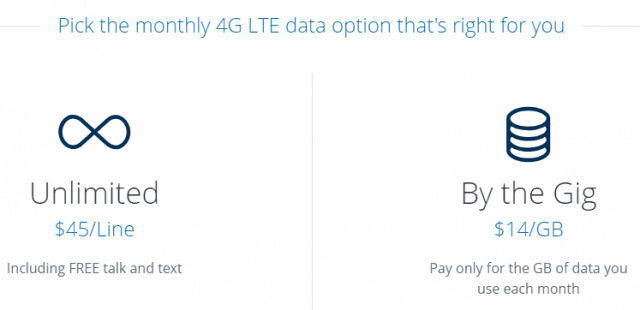
Unlimited $45
- Unlimited talk
- Unlimited texting (does not count against 20 GB threshold)
- “Unlimited” data: After 20 GB of usage per month, speeds may be throttled for the rest of the billing cycle.
- Customers can switch a line from Unlimited to By the Gig at the end of your billing cycle, charged $14/GB.
By The Gig $14
- Unlimited talk
- Unlimited texting (does not count towards data usage)
- $14/GB for data
- Customers can switch a line from By the Gig to Unlimited at any time during the billing cycle, assuring you won’t pay more than $45 a month for a plan.
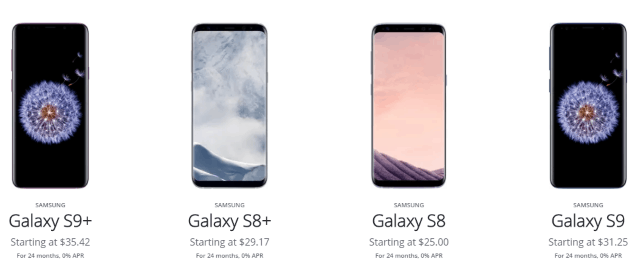
Spectrum’s initial assortment of smartphones is extremely limited.
There are various fine print terms and conditions to be aware of if considering switching to Spectrum Mobile:
- New Spectrum internet customers with fewer than 30 days of service are limited to up to two lines. Devices associated with these lines are shipped to the internet service address on file. After 30 days of Spectrum internet service, customers may be eligible for more lines, up to a total of five, based on credit rating.
- Equipment, taxes and fees (including regulatory recovery fees, surcharges and other applicable charges) extra and subject to change.
- There are no additional fees for using your phone as a mobile hotspot. After 5 GB of mobile hotspot data use in the bill cycle, mobile hotspot speeds are reduced to a maximum of 600 kbps for the rest of the bill cycle. Mobile hotspot data counts toward your 20 GB high-speed data allowance.
- DVD-quality video streaming is supported. Video typically streams at 480p.
- If a residential Spectrum internet subscription isn’t maintained, an additional $20 per-line monthly charge will be applied and Spectrum Wi-Fi speeds will be limited to 5 Mbps. You can change your rate plan, but you won’t be able to add additional lines.
- Spectrum Mobile is not currently considered part of your Spectrum service bundle, so no bundling discounts are available.
- Spectrum will not pay any early termination fees you might encounter if you cancel service with your old carrier and have a service contract.
- Auto-pay with a credit or debit card is required.


 Subscribe
Subscribe Verizon Wireless, ignoring its agreement with the Federal Communications Commission not to lock handsets, will soon stop selling unlocked phones, at least temporarily preventing customers from taking their phones to another carrier or overseas without Verizon’s consent.
Verizon Wireless, ignoring its agreement with the Federal Communications Commission not to lock handsets, will soon stop selling unlocked phones, at least temporarily preventing customers from taking their phones to another carrier or overseas without Verizon’s consent.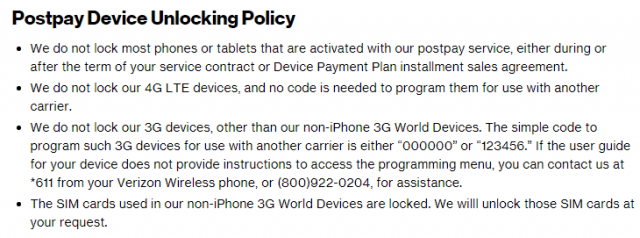
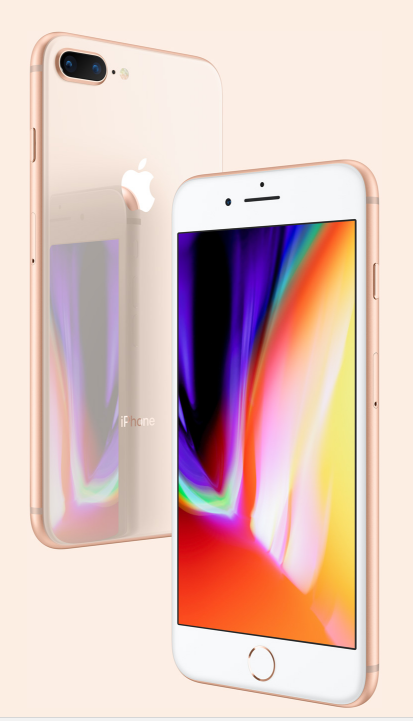


 After the first 10,000 views of the video-that-went-viral, SFR’s damage control team moved in… to rescue SFR’s reputation. The company tweeted it had identified the culprits, (later independently identified as employees of the SFR shopping center in Villeneuve d’Ascq) and they would be “severely punished.” Within hours, both men were fired.
After the first 10,000 views of the video-that-went-viral, SFR’s damage control team moved in… to rescue SFR’s reputation. The company tweeted it had identified the culprits, (later independently identified as employees of the SFR shopping center in Villeneuve d’Ascq) and they would be “severely punished.” Within hours, both men were fired.